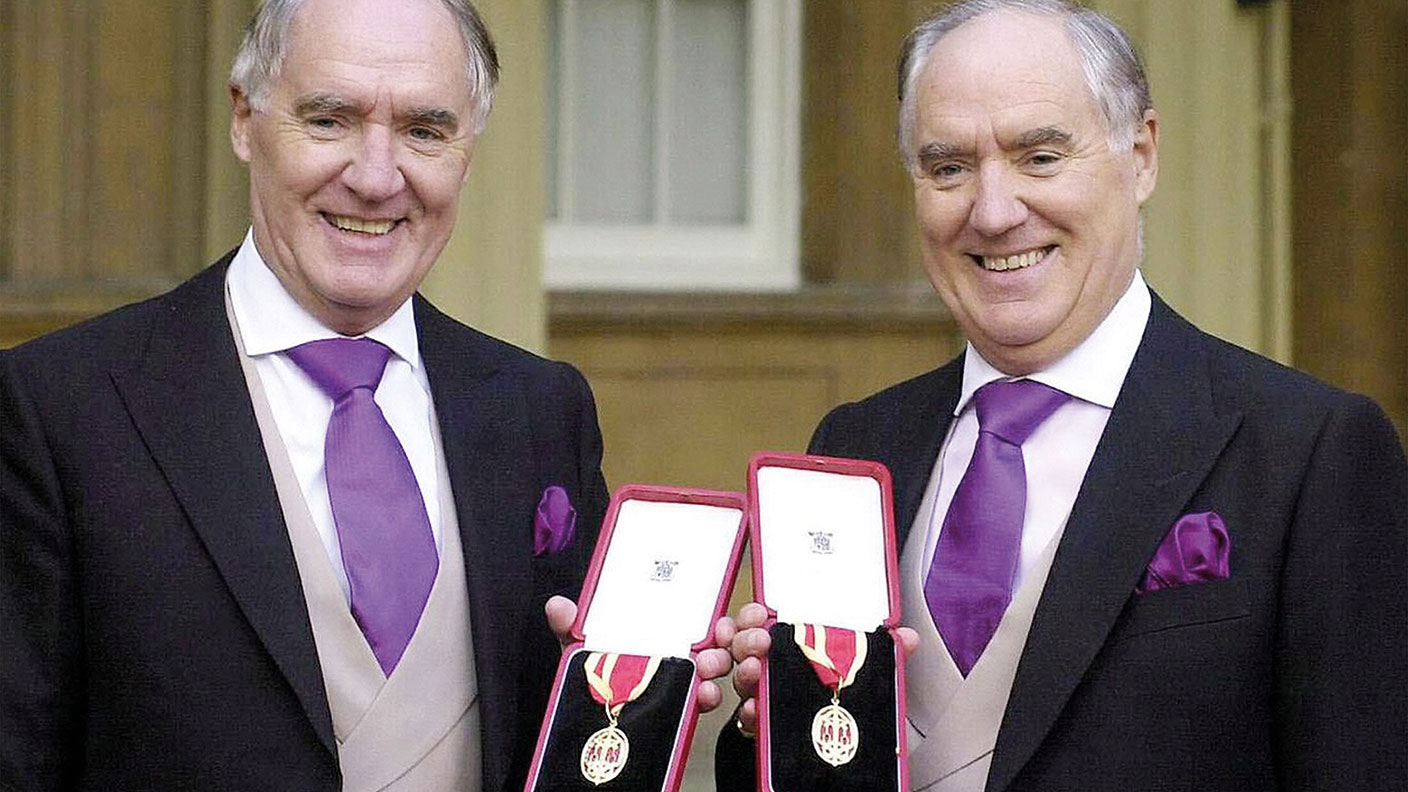Barclay twins: billionaire brothers square off in court
The Barclay twins spent 60 years building a business empire together. Now, they are squabbling over the spoils and threatening lawsuits.

Get the latest financial news, insights and expert analysis from our award-winning MoneyWeek team, to help you understand what really matters when it comes to your finances.
You are now subscribed
Your newsletter sign-up was successful
Want to add more newsletters?

Twice daily
MoneyWeek
Get the latest financial news, insights and expert analysis from our award-winning MoneyWeek team, to help you understand what really matters when it comes to your finances.

Four times a week
Look After My Bills
Sign up to our free money-saving newsletter, filled with the latest news and expert advice to help you find the best tips and deals for managing your bills. Start saving today!
Born ten minutes apart, Sir David and Sir Frederick Barclay have been inseparable for much of their lives. But 60 years after they began building their business empire, the 85-year-old brothers have been ripped apart by an extraordinary family row – played out in the gilded environs of their prize asset, London’s Ritz Hotel.
Sir Frederick and his daughter, Amanda, are taking legal action against the three sons of Sir David (Alastair, Aidan and Howard), plus a grandson, for allegedly bugging his private conversations in the hotel’s conservatory – his favoured retreat for business meetings and smoking cigars. The row, which erupted when Alastair was caught on film handling the bugging device, has thrust the family’s famously secretive affairs into the spotlight, exposing a split about the future of their empire. Until now, the “Thatcherite billionaires” – who also own the Daily Telegraph stable of newspapers, the online retailer the Very Group (previously known as Shop Direct) and delivery firm Yodel – “have been two sides of one coin in the public imagination”, says Henry Mance in the Financial Times.
Selling off The Ritz
The Ritz has become “the focal point in a 21st-century power struggle as dramaticas Succession, the hit TV series about a media empire run by a feuding family”, says The Guardian. Last week, Sir Frederick outlined that he would sue Sir David’s clan – who now control Ellerman Holdings, the holding company for the Barclays’ UK assets – if they sold The Ritz for less than £1bn. With parts of the empire apparently in financial difficulty, there had been reports that the hotel, which the brothers bought for £75m in 1995, could be sold to a Saudi Arabian private-investment firm for about £750m. David’s family maintains that Frederick and Amanda have “no power” to block the decision but, clearly, division in the family makes any sale more difficult.
MoneyWeek
Subscribe to MoneyWeek today and get your first six magazine issues absolutely FREE

Sign up to Money Morning
Don't miss the latest investment and personal finances news, market analysis, plus money-saving tips with our free twice-daily newsletter
Don't miss the latest investment and personal finances news, market analysis, plus money-saving tips with our free twice-daily newsletter
The empire-building begins
The family had humble beginnings. Born in 1934 in Hammersmith, west London, the sons of a travelling salesman, they began work together at the age of 16 in the accounts department of GEC, before branching out into a decorating business. Within ten years, they were buying up old boarding houses and, by the 1970s, owned London landmarks including the Lowndes Hotel. But it was “the 1980s that were really the breakthrough years for the brothers, when their ability to buy companies cheaply, develop the property and sell off parts, came good”. Their first really big break came when they bought the shipping and brewing group Ellerman Lines for just £45m from the family scion’s widow. Five years later, they sold the brewing division for £240m.
It now appears that the rift between “the once inseparable twins” had “been building for years”, says The Guardian. Four years ago, when a new headstone was placed on their father’s grave, Sir David put his name on it, but “Sir Frederick’s name is absent”. Now “in the twilight of their business careers”, this bitter family feud is threatening the break-up of their empire, setting cousin against cousin. Whatever one might think about the brothers’ often controversial dealings, Barclay v Barclay is a sad conclusion.
Get the latest financial news, insights and expert analysis from our award-winning MoneyWeek team, to help you understand what really matters when it comes to your finances.
Jane writes profiles for MoneyWeek and is city editor of The Week. A former British Society of Magazine Editors (BSME) editor of the year, she cut her teeth in journalism editing The Daily Telegraph’s Letters page and writing gossip for the London Evening Standard – while contributing to a kaleidoscopic range of business magazines including Personnel Today, Edge, Microscope, Computing, PC Business World, and Business & Finance.
-
 Average income tax by area: The parts of the UK paying the most tax mapped
Average income tax by area: The parts of the UK paying the most tax mappedThe UK’s total income tax bill was £240.7 billion 2022/23, but the tax burden is not spread equally around the country. We look at the towns and boroughs that have the highest average income tax bill.
-
 BBC TV licence fee hike confirmed: can you reduce how much you pay?
BBC TV licence fee hike confirmed: can you reduce how much you pay?The cost of a TV licence fee is set to rise by over 3%, but there are ways to reduce the bill.